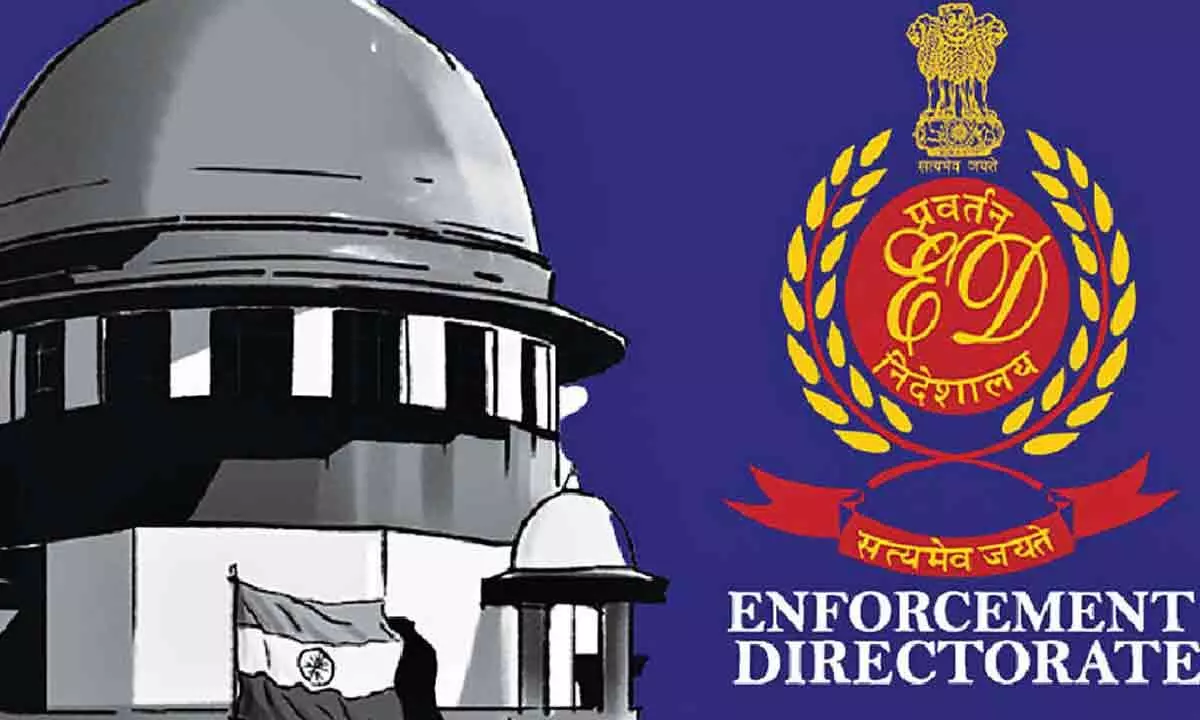Consent must for ED to arrest accused says Supreme Court

''ED cannot arrest someone under Section 19 of the PMLA once they've been summoned by the court if they weren't arrested during the investigation; if an accused shows up after summons by the special court, the ED cannot arrest them without taking permission from the court'
New Delhi : The Supreme Court on Thursday said that if an accused in a money laundering case shows up after summons by the special court, the Enforcement Directorate cannot arrest them without taking permission from the court.
The court also said that if the accused person, who is not arrested by the ED, comes to court after being summoned, they don't have to meet the tough conditions for getting bail as laid out in Section 45 of the PMLA, as per a report by the Bar and Bench.
The verdict was delivered by a Bench of Justice Abhay S Oka and Justice Ujjal Bhuyan. "If ED wants custody of accused after the person appears after summons, ED can get custody after application to special court. The court will only grant custody with reasons satisfying that custodial interrogation is needed," the court said. Basically, the ED cannot arrest someone under Section 19 of the PMLA once they've been summoned by the court if they weren't arrested during the investigation. They have to ask the court for permission to do so.
Section 19 states that ED officers can arrest an accused if they have a "reason to believe" that the person is guilty of an offence punishable under the Act.
The court’s decision came up in a case where the bench was dealing with the question of whether someone accused of money laundering still has to meet those tough bail conditions after showing up in court because of a summons issued on the Enforcement Directorate’s complaint.
















